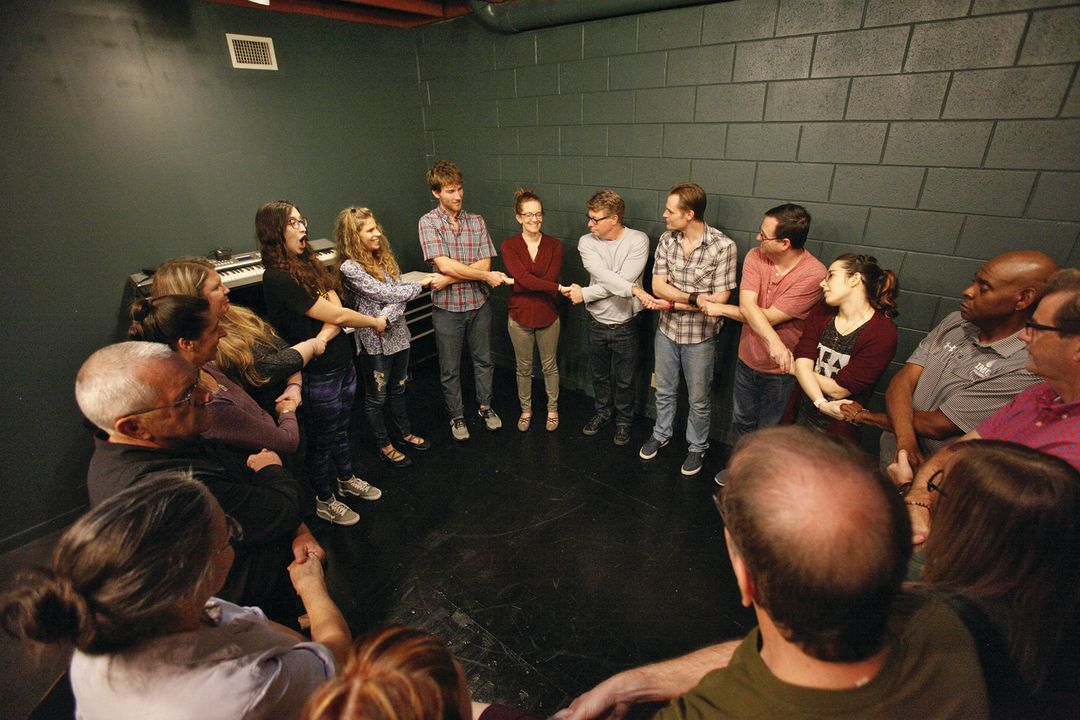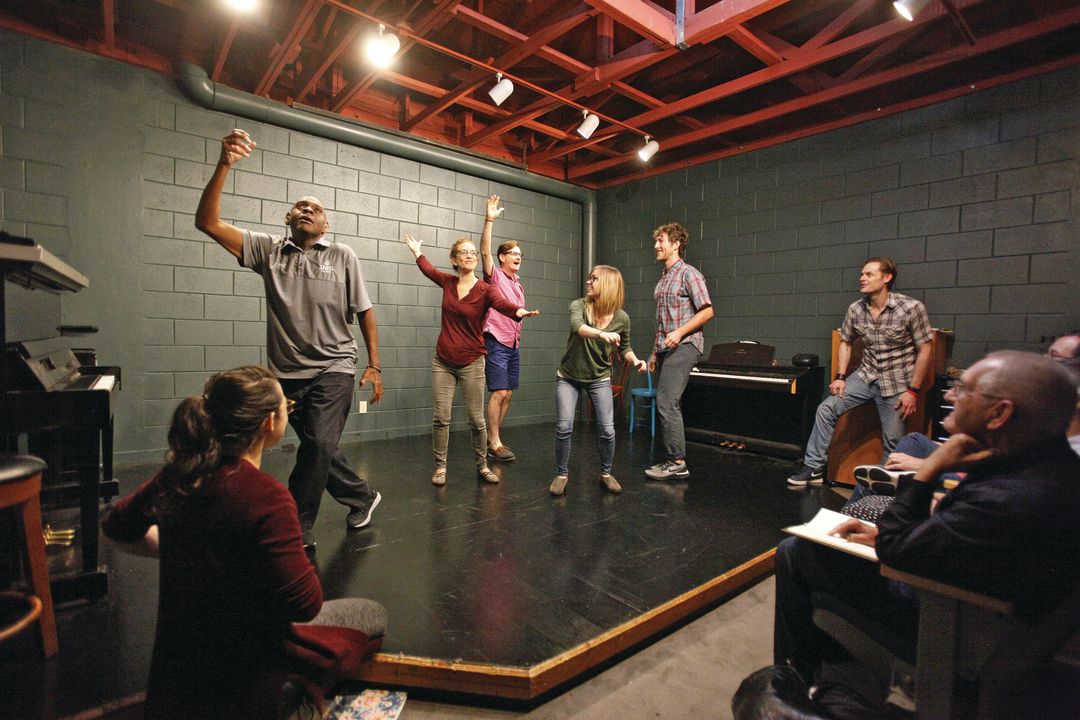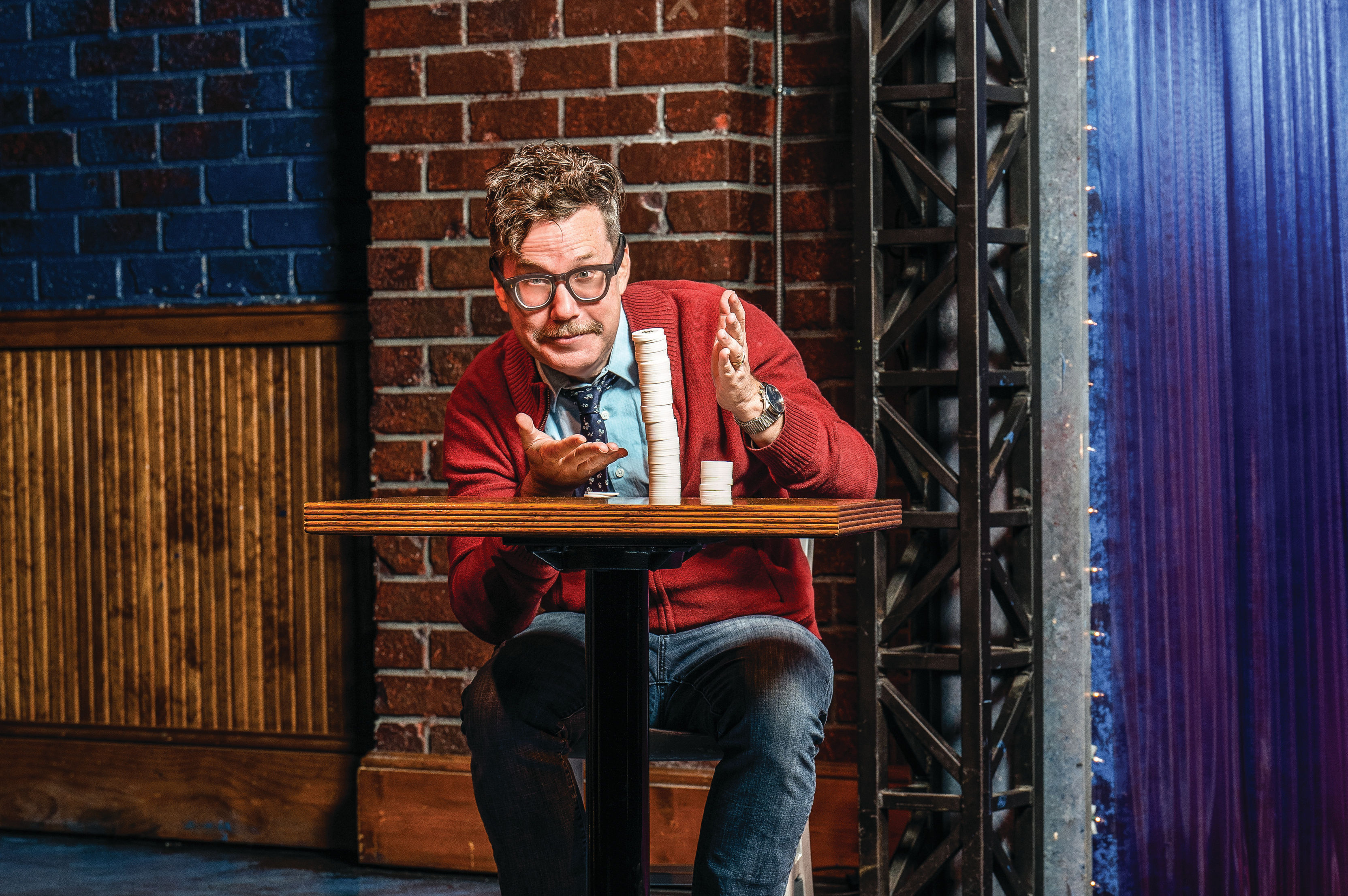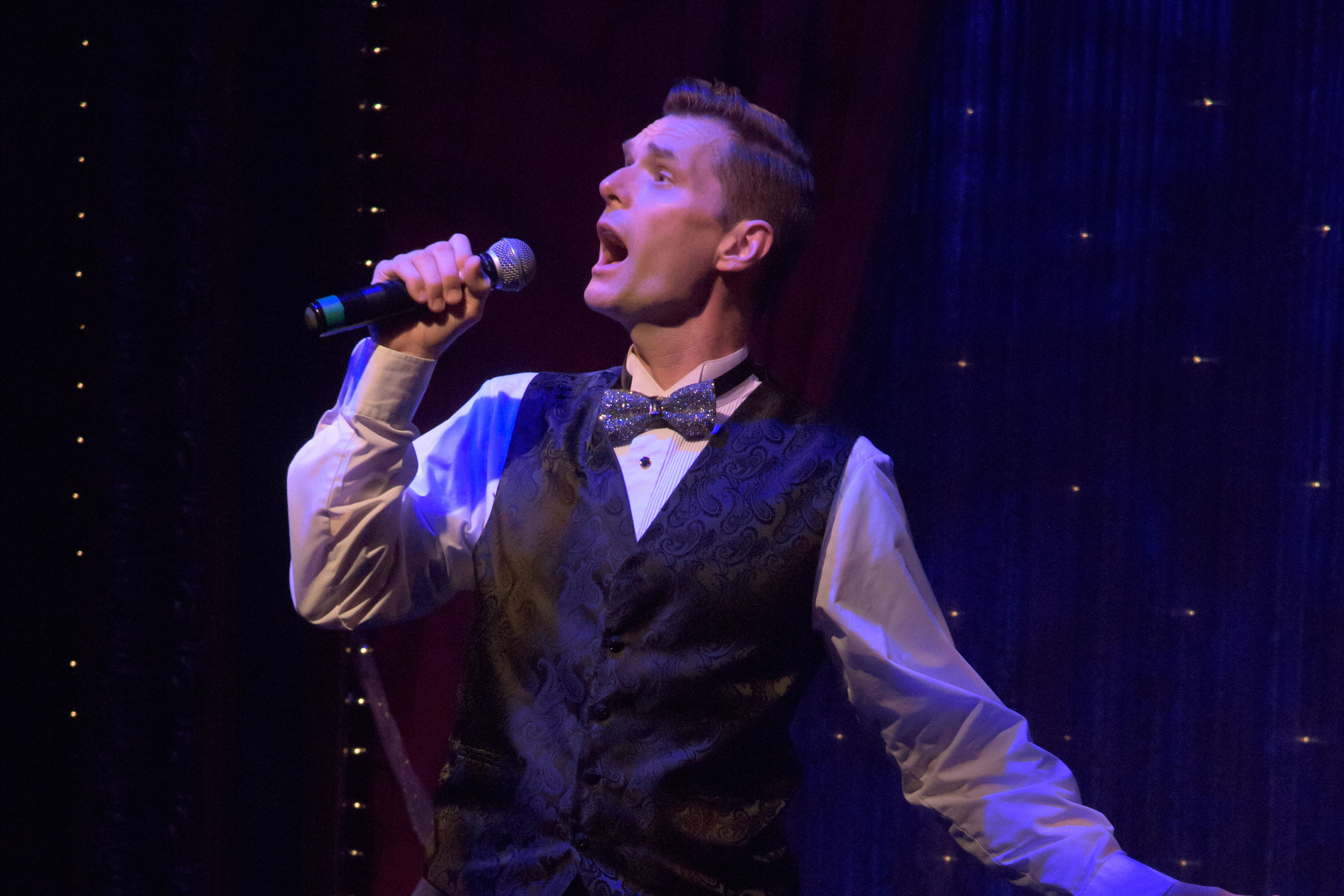We Tried It: FST's Improv Workshop

Students at FST's improv class, including the author, center.
Image: Gene Pollux
I dreaded my first ever improv class. Maybe because it was a Saturday and I didn’t feel like doing anything. Or maybe I didn’t like the idea of being required to participate, like when someone is trying to get me to dance to a song I don’t like. Still, I showed up at Florida Studio Theatre ready to partake in “Anatomy of the Story,” a class taught by two members of the Austin-based improv comedy troupe Available Cupholders.
Kaci Beeler and Ace Manning have performed improv for 17 and 20 years, respectively, and have taught all over the world. “It was toughest teaching in South Korea,” Beeler said. “In improv, we say you have to ‘find failure fun.’ That concept did not go over well over there.”
I wondered how it would work here. A foundational tenet of improv is “saying yes,” which sometimes lends itself to criticism that it’s a cult, like the positive-think world of self-help types like Tony Robbins. There’s also the joke that every failing actor belongs to a troupe that performs to empty rooms.
But the room at FST was full. There were 14 students—eight women and six men ranging in age from the mid-20s to 70s. It was a small space with harsh lights illuminating a stage that came about eight inches off the ground. Most people were here on a lark. They’d seen the Cupholders perform and wanted to try it out for themselves.
Each exercise is called a “game.” The first game had everyone walking around the stage trying not to bump into each other. “Protect fellow players,” Manning said, “the No. 1 rule.” I didn’t knock anyone over. So far, so good.
Now it was story time.
“We are all intuitive storytellers,” Beeler said. “It’s in you. It’s just a matter of refining it.” I thought of late nights at bars listening to acquaintances ramble through excruciatingly boring stories.
Participants paired off and told their partners a story about life during college. I told my partner the ill-fated story about being strong-armed by my roommates into raising goats in the tiny back yard of the house I rented in Portland, Oregon. After we each told our story, we rotated to a different partner and had to tell the story again, except this time we died at the end. “The goat milk poisoned me.” Then we rotated and told the story and got married. “I married the goat.” We rotated one more time and were told to acquire superpowers. “I gained the superpower of lactation.”
I felt good about my storytelling ability.
For the next exercise, our teachers said, “Bring a brick, not a cathedral.” In other words, keep it simple. We needed to make a story brick by brick with the following formula:
1) Once there was
2) And every day
3) Until one day
4) And because of that
5) And because of that
6) And because of that
7) Until finally
8) And every day since.
We went around in a circle, each adding a single brick to create a whole story. For some of the students it was hard not to go overboard. One story was about a dressmaker. When it was the turn of a Polish doctor named Wes Rocki, who sounded like a mixture of Werner Herzog and Christopher Walken, he tried too hard, saying that the dressmaker ran out of the shop naked and freaked the whole town out. It threw everyone off.
“Don’t try to win the workshop,” Beeler reminded him. The doctor said he acted like a smart-ass to compensate for his insecurities. Manning said, “I get it. Being a smart-ass is my lifestyle choice.”
When it was my turn to start a story, I said, “There once was an unhappy dentist named Tom.” From there it went to the person to my left. “Tom met a woman.” “Tom was happy.” I was disappointed. I wanted tragedy. The next story was similar. There was a man. He fell in love. Life was good. It seemed deeply American—the belief that happily ever after happens when you meet the right person. I could sense my negativity taking over.

The author, far right, and other improv students “practicing positivity” with instructor Kaci Beeler, seated at bottom.
Image: Gene Pollux
The last game of the afternoon required some acting. The trick was to tell a story without any conflict. “We are going to practice positivity,” Beeler said. Seven students were asked to come to the stage. “You’re all in prison,” Beeler said. One student after another had trouble finding something good to say. What is it about the human species that makes us want conflict? I wondered.
After the class I spoke with the Polish doctor. He’s 72 years old and has practiced medicine for more than 40 of them. For the past two years he has taken “intensive” improv courses to help his medical practice. “It can be complementary to medicine,” Rocki told me. “The trouble with health is when you get bad news, your world collapses. Improv opens us back up to the infinite possibilities.”
“That could be a good thing,” I thought. In other words, yes.
Intrigued by Inprov?
FST’s 11th Annual Improv Festival takes place July 12 and 13. FST also holds improv workshops throughout the year. For information, go to floridastudiotheatre.org/actors-lab-0 or contact education administrator Pamela Smith, (941) 366-1350, [email protected].



